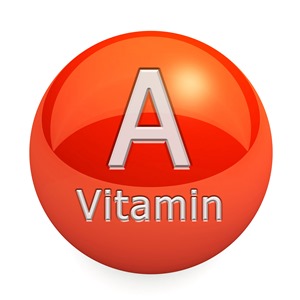
I receive many questions about how much vitamin A I recommend as part of a daily regimen. Many people are concerned about vitamin A toxicity, and it's a valid concern. What I always tell patients and others who are concerned that they're getting too much vitamin A is that it's important to keep in mind that, by law, supplement manufacturers must list on their labels both retinyl palmitate and beta-carotene as vitamin A.
The truth, though, is that beta-carotene and other carotenoids are only converted into vitamin A if the body needs it. Even then, vitamin A from retinyl palmitate and vitamin A from beta-carotene don't behave the same way in the body.
Retinyl palmitate (true vitamin A) is fat soluble, which is why it's possible to build up toxic levels of it if you get too much. Nevertheless, it's important to get adequate levels of vitamin A from retinyl palmitate because it plays a vital role in many functions in the body—including vision, reproduction, bone growth, blood cell generation, and brain development.
Beta-carotene and other carotenoids (such as alpha-carotene and beta-cryptoxanthin) are powerful antioxidants that are important for the maintenance of a healthy immune system. Since the carotenoids can be converted into a different form of vitamin A (retinol) when necessary, it's a good idea to give your body enough of them to use when it needs to.
Because carotenoids are water soluble, whatever your body doesn't need is passed in your urine—which means you can't build up toxic levels, but you can end up with some very bright yellow urine. But there is one note of caution: If someone has alcoholic liver disease or hypothyroidism, the liver has a difficult time converting beta-carotene into vitamin A, so toxic levels can build up if large doses of beta-carotene are taken under those circumstances.
How Much Vitamin A Should You Take?
Because manufacturers must list both retinyl palmitate and beta-carotene as "vitamin A" on their labels, figuring out how much of each you're getting in a supplement is a tricky business. Conscientious manufacturers will break it down for you in parentheses—such as "25% from retinyl palmitate and 75% from beta-carotene."
I recommend 5,000 IU a day of vitamin A from mixed carotenoids and retinyl palmitate. At this amount, there is no danger of vitamin A toxicity, and you will be giving your body what it needs for a wide variety of health benefits.


